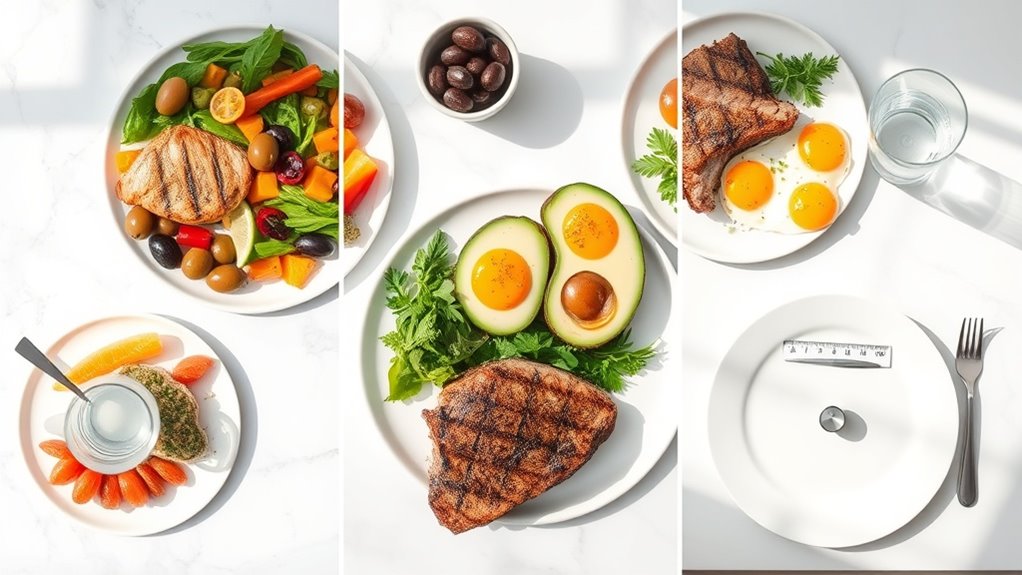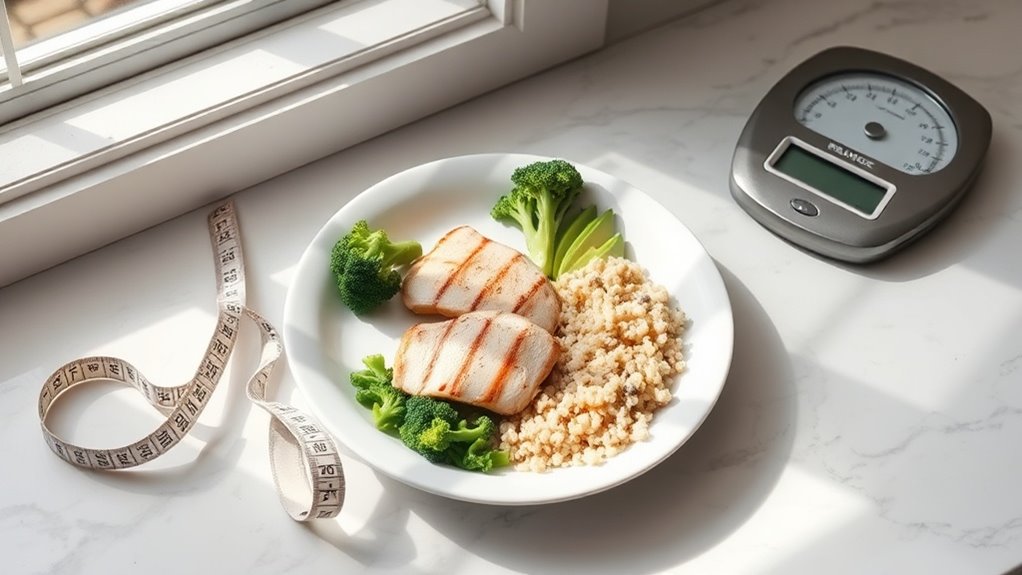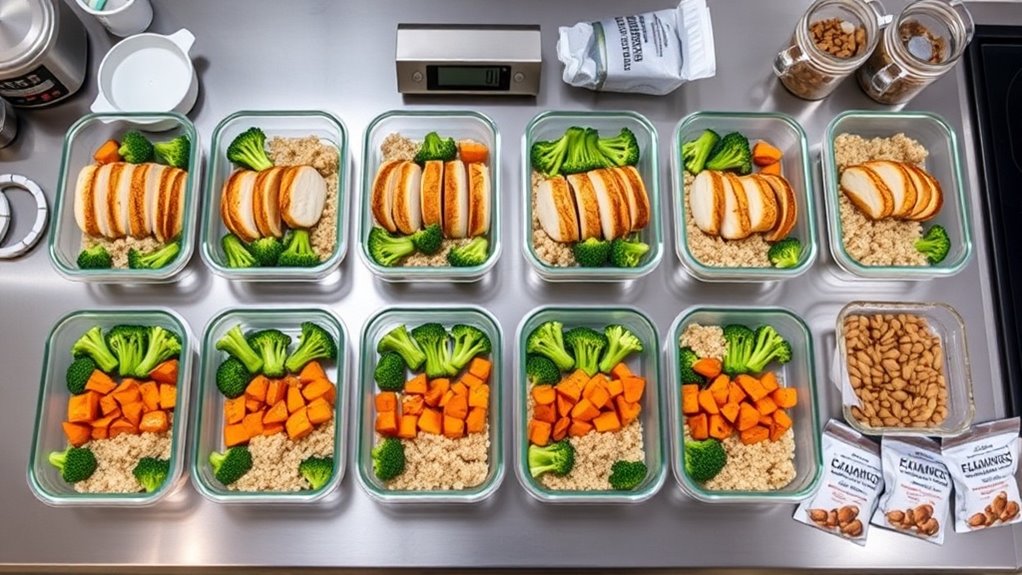Eating Healthy on a Budget- Yes, You Can Lose Weight Cheaply
It’s quite a coincidence that as you’re juggling your budget, you discover eating healthy and losing weight doesn’t have to drain your wallet. You’ll find affordable staples like beans and oats deliver big on nutrition and satiety. Stick around for strategies that make it simple and sustainable.
Key Takeaways
- Create a weekly meal plan to reduce food waste and save money on groceries.
- Prioritize affordable staples like beans and oats for nutrient-dense, weight-loss-friendly meals.
- Prepare simple recipes with seasonal vegetables to maintain a balanced, low-calorie diet.
- Buy in bulk and compare unit prices to stretch your budget without sacrificing nutrition.
- Track food intake and incorporate walking to sustain weight loss habits affordably.
Budget-Friendly Grocery Shopping Strategies
How can you shop for groceries on a budget while keeping your meals nutritious?
Start by creating detailed budget meal plans that outline your weekly needs, drawing on evidence from nutrition studies showing this reduces waste by up to 25%.
You prioritize nutrient-dense staples like beans, oats, and seasonal produce, which offer high value per calorie.
Actively compare unit prices at stores, buy in bulk for non-perishables, and stick to a pre-made shopping list to avoid impulse buys.
This practical approach ensures you’re spending wisely, aligning purchases with affordable, health-focused eating habits.
To enhance your meal planning, focus on portion control to prevent overeating and support your weight loss goals.
Affordable and Nutritious Meal Ideas
You’ll transform your budget-friendly staples into satisfying meals by focusing on simple, nutrient-rich recipes that align with dietary guidelines from organizations like the WHO.
Incorporate affordable options like beans, lentils, and seasonal vegetables to create balanced plates full of fiber and essential nutrients, promoting sustained energy and weight management.
For example, mix oats with fruits for breakfast or use eggs with greens for lunch, keeping costs low while meeting protein needs.
Evidence shows these choices reduce chronic disease risks, as per WHO data, making healthy eating accessible and effective for you.
Stay consistent for optimal results.
To enhance your meals without extra expense, consider simple dietary swaps such as opting for whole grain bread instead of white for greater satiety.
Simple Recipes for Weight Loss on a Budget
Building on affordable meal ideas, you can whip up simple recipes that trim calories while keeping costs low.
For example, prepare a quick bean salad with canned beans, fresh veggies, and a lemon vinaigrette; it’s high in fiber, which evidence shows aids satiety and weight loss.
Try baked oatmeal with oats and frozen berries for breakfast—it’s nutrient-dense and keeps you energized without excess calories.
According to nutrition experts, these meals reduce intake by focusing on whole foods, making weight loss achievable on a budget.
You’ll enjoy tasty, effective options that fit your wallet.
To enhance your routine, try incorporating meal planning strategies to make these budget-friendly recipes even easier to prepare and stick to.
Smart Ways to Maximize Your Food Dollars
Maximizing your food dollars starts with strategic planning, such as creating a weekly meal list to cut waste and overspending. This method reduces impulse buys and targets affordable essentials. You’ll save by buying seasonal produce, which offers better value and nutrition, as supported by agricultural data. Opt for store brands; research from consumer groups confirms they’re comparable to name brands at lower costs. Buy staples like grains in bulk for cost-effective per-unit prices, and use price-comparison apps to snag deals. These tactics let you eat healthily without breaking the bank, focusing on smart, immediate savings. When choosing budget-friendly snacks, watch out for hidden sugars that could undermine your weight loss goals, as seen in products like granola bars.
Sustainable Habits for Long-Term Healthy Eating
While short-term savings are helpful, adopting sustainable habits ensures you maintain healthy eating over the long haul.
Research shows that meal prepping weekly saves money and reduces waste, as you’ll buy only what’s needed.
Focus on whole foods like beans and seasonal veggies, which are nutrient-dense and cost-effective.
Track your intake with a simple journal to build awareness and prevent overeating—studies confirm this boosts long-term weight loss.
Make exercise a routine, like walking while shopping, to support metabolism.
Stay consistent; these habits, backed by experts, help you eat healthily without breaking the bank.
Additionally, incorporating a food journal can boost awareness of your eating patterns and promote greater accountability for sustained weight loss.





